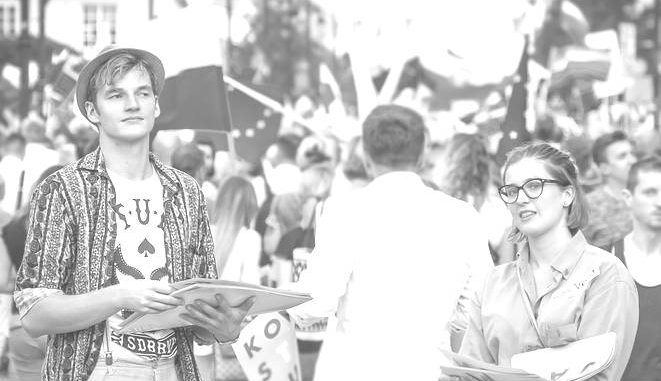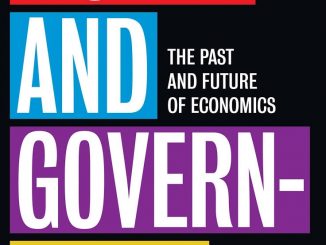
There is so much white noise in the media concerning Brexit, almost all of it by people who have no idea of what is really going on behind the scenes. David Shirreff tries to make some sense of what the issues are and the current state of affairs.
David Shirreff is one of the founders and current eidtors of BRAVE NEW EUROPE. He is a former finance and business journalist at The Economist, author of “Break up the Banks!”, and playwright
We at Brave New Europe don’t take a position on Brexit. While we recognise that many dark and odious forces lay behind the Brexit vote, and that the process will inflict significant economic damage on many people, we also know that European institutions and policies typically reflect a strong neoliberal slant – and we launched this project to oppose and change this. We have sympathy with the anger against European institutions – but we also believe in the principle of European cross-border co-operation and co-ordination in many areas. Reflecting this complex reality, we will host both pro-Brexit and pro-Remain articles.
Cheltenham, a spa town in the west of England, is not often riven by political debate. But the annual Cheltenham Literary Festival, which for two weeks in October normally plays host to novelists, historians, culture vultures and academics, this year also featured a series of debates on Brexit – what else.
It is a subject that rages up and down the country and has unfortunately divided families, social clubs and even mainstream political parties more than any other issue since the English civil war in the 1640s or, some say, the Corn Laws in the 1840s.
Among the worst effects of the Brexit process – the process of Britain leaving the European Union, which was triggered in March this year – is this polarisation of a normally peaceful and tolerant nation. Two speakers at the Cheltenham debates, Nicky Morgan and Anna Soubry, both Conservative MPs and outspoken Remainers, said they regularly receive death threats – presumably from indignant Brexiteers. The ruling Conservative Party is divided in itself, so is Prime Minister Theresa May’s own cabinet, presenting an appalling image to the country as a whole and to its negotiating partners in the European Union. The opposition Labour Party, which seems in a good position to win the next general election, if one is called, is also divided on the issue of Brexit. Only one party, the Liberal Democrats, is unequivocally against Brexit and for staying in the European Union.
Another damaging effect, already observable, is a dip in the inflow of immigrant labour from the EU. Paul Johnson, director of the Institute for Fiscal Studies, notes that for many businesses this is a bigger concern than the threat of an end to tariff-free trade.
Uncertainty about the outcome of Brexit negotiations – whether they will lead to a deal preserving many aspects of relations with the EU (soft Brexit) or a complete severance of relations (hard Brexit) – is already forcing bigger companies to prepare for the most extreme hard Brexit as a contingency. For banks and other finance companies that already means moving some London operations to neighbouring EU countries – particularly France, Germany and Ireland. That is prudent, even if the leaders of these businesses personally favour a soft Brexit.
So part of Brexit is becoming self-fulfilling, making it seem futile to resist. That anyway is the argument proffered by many Remainers who are facing up to the probability that Brexit will happen. There are only a few Brexit deniers left, and their voices are quite disunited although mainstream media continue to give them considerable coverage. The Financial Times on October 14th noted the launch of a new political party, Renew, by two men who stood as independent candidates in the recent general election. Their main goal is to reverse the Brexit process. Like the Liberal Democrats they want to see a second referendum on a final deal negotiated with the EU. The Times on October 14th also carried an article by Paul Goodman, a Brexiteer Conservative commentator, flagging up a possible bid by George Osborne, former chancellor of the exchequer and a Remainer, to lead a new centrist Democratic party, taking inspiration from the success of President Emmanuelle Macron in France.
These tentative initiatives, along with former Labour prime minister Tony Blair’s European Movement, are hardly galvanising any co-ordinated anti-Brexit action. Almost the reverse: they are sending a signal to Remainers that there is actually no practical mechanism for reversing the Brexit process. The best that Remainers can hope for now is a deal with the EU that keeps Britain as close as possible to existing single-market and customs-union conditions.
That may now be the most sensible and conciliatory tactic for the Remain camp. But it does not assuage what can be termed Brexit “anger”, that is, a sense of indignation that the Brexit process is being mishandled by people who are not up to the task. Instead of striking up a useful dialogue with their Brussels counterparts, the leading Brexiteers – David Davis, minister for Brexit, Liam Fox, minister for trade, and Boris Johnson, foreign secretary – seem to have achieved little so far beyond getting their counterparts’ backs up. So there is polarisation not only within Britain itself, but also between Britain and the European Union.
Brexit anger is an understandable emotion. It is easy to mock and criticise. My own satirical show, Brexodus! The Musical, which has just ended what may be its final run at a London fringe theatre, found these gentleman easy targets, as it did Theresa May, Nigel Farage, David Cameron and Michael Gove.
Ridiculing the British political elite may be fun; it may also make some important points; but in the long term it is not very constructive. We are where we are. Mr Davis must face Michel Barnier, chief Brexit negotiator on behalf of the EU, and vice versa. A deal must be struck, because the potential damage done to both sides by a non-deal would probably be a lot worse.
The view of even the most hard-core Remainers on the debating podiums of the Cheltenham festival last week was that Britain must now make the best attempt to achieve a soft Brexit. Anything more radical, such as an 11th-hour “Breversal”, is becoming less and less realistic.
If that acceptance of the near-inevitable leads to a Britain less divided in itself, and less divided from Europe, then so much the better. Even in civilised Cheltenham, which in June 2016 recorded a 76% vote in favour of staying in the EU, the animosity at those debates between the Remainers in the audience and the handful of Brexiteers was palpable. Some Brexiteers walked out in high dudgeon. As one panellist remarked: The sooner the population spends less time on politics itself, and leaves it to the politicians, the better.



Be the first to comment